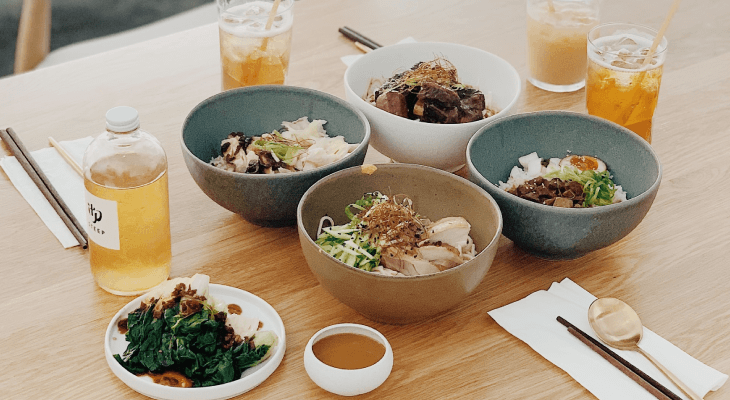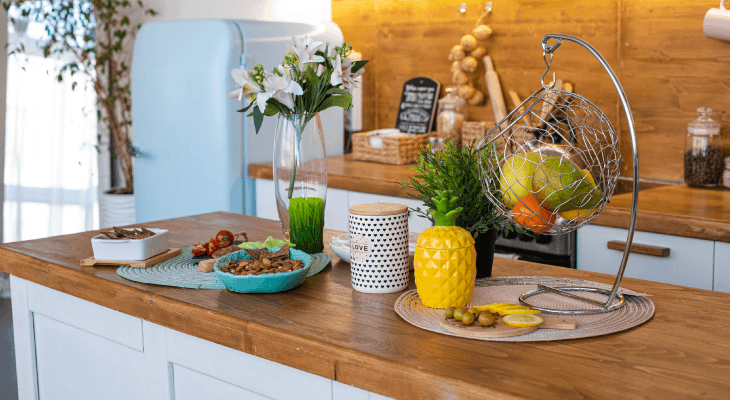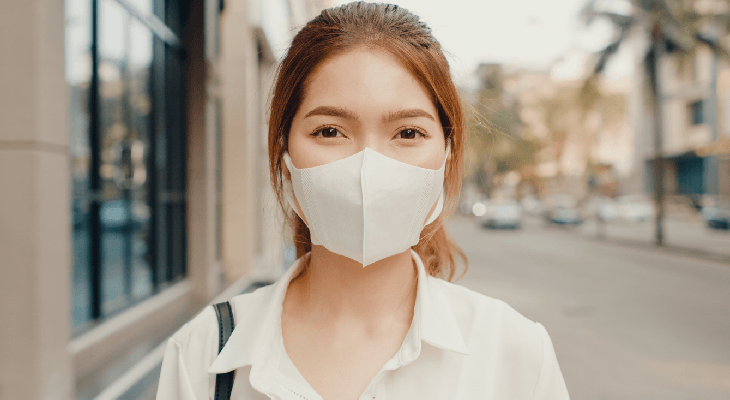5 Scientifically Proven Ways You Can Eat Healthy Without Stressing
Why take on challenging diets when you can just switch to a more colourful plate? Check out these simple tricks to make eating healthy a habit.
Published 20 Aug 2021

If you’re planning to lose weight or eat healthy, then you’re already familiar with the plethora of articles on diet tricks and food fads. But let’s be honest, the rules can be tricky and hard to follow, especially if you lack the motivation.
Well, we’re here to help you eat healthy without having to think too much about it. Best of all, these tricks are backed by science.
#1. Eat less by using smaller plates

Large plates are great if you’re at a buffet and trying to make your money’s worth. But when you’re trying to exercise portion control, consider using smaller plates.
People consume an average of 92% of what they serve themselves and smaller plates means smaller portions. According to a study by Wansink, you’d eat 22% less food over the course of one yearif you change your dinner from a 12-inch plate to a 10-inch plate. If that sounds little, imagine how much you’d eat over one year if you had used a larger plate.
Now, you may think, “Why can’t I just put less food on a large plate?” Unfortunately, your brain may perceive you as depriving yourself, causing you to want more. The idea is to trick your brain (and stomach) into thinking you have a full plate. By having a smaller portion on a large plate, you’ll be consuming less calories while feeling satisfied at the same time.
#2. Use colourful dishware to control your portion

Apart from sizes, the colour of your plate also plays a role in eating healthy.
Studies have shown that using a plate that contrasts sharply with your food can help you perceive portion size properly. A 2012 Cornell University study found that participants served themselves 22% more white Alfredo pasta on a white plate as compared to those who were given red plates. This is because people perceive that there is less food on the plate if there is more space between the edge of the food and the edge of the plate — something that will happen if your food and plate is the same colour.
When planning a balanced meal, consider opting for dark green or dark blue plates that contrast light foods like pasta or rice (so you’ll eat less) and have a lower contrast with vegetables (so you’ll eat more).
PRO TIP
Interested in conducting fascinating experiments like these? Be on your way by taking up a degree in psychology. Learn more about this course here.
#3. Drink less sugar by using tall glasses

Every diet calls for a reduction in sugar consumption. But what if you can’t kick your craving for fizzy drinks or your daily teh tarik?
Instead of quitting cold turkey which almost never works, try cutting it out slowly by changing the perception of your consumption. You can do this by using tall, slender glasses instead of short, fat ones for sugary drinks like soda, fruit juice and sweetened drinks.
Now, both sizes may hold the same volume of liquid but our brain has a tendency to overestimate vertical lines and make them look bigger. Using tall glasses can slow down your drinking speed and overall consumption as opposed to using shorter glasses. In fact, you’ll naturally pour less liquid into your glasses to pace yourself from “drinking too much” when you’re actually not. It’s a good trick to drinking less sugar!
Apply for university with EduAdvisor
Secure scholarships and more when you apply to any of our 100+ partner universities.
Start now#4. Only put healthy food and snacks on display

Ever heard of the saying “out of sight, out of mind”? This holy grail isn’t just useful when you’re trying to get over an ex; it’s also helpful in your journey to eating healthy.
According to a Cornell University study, people are more likely to lose or maintain their ideal weight when they have access to fruits as compared to those who have easier access to junk food.
In essence, make fruits and vegetables the focal point of the kitchen and place nuts and yoghurt at the front of the pantry to ensure you have access to healthy options when cravings hit. You don’t necessarily have to cut out junk food altogether but consider buying less of them or store them in places that’s less prominent and hard to reach.
PRO TIP
Products that are perceived as healthy due to their labels (e.g. ‘organic’, ‘low-fat’, ‘all-natural’) aren’t necessarily good or healthier. This is called the health halo effect,a cognitive bias that you can learn in psychology.

#5. Have water readily available

It’s no secret that water is good for you. It helps carry nutrients in your oxygen cells, aids digestion and stabilises your heartbeat. While you don’t necessarily need 8 glasses of water a day (who’s counting anyway?), making it a habit to drink water often will benefit you in the long run.
One of the easiest ways to do this is make water readily available around you. Consider getting a large bottle of water instead of drinking in cups and set it close to you throughout the day, whether it’s on your study, by the bed or wherever you’re sitting. Rather than having to walk back and forth to the kitchen which hinders you from drinking out of procrastination, this trick will help you make drinking a habit.
Not only that, drinking water often can also help you lose weight. Whether you realise it or not, drinking regularly helps you feel full and stops you from snacking unnecessarily when you’re feeling peckish. It’s also a good substitute for caloric beverages. You can also opt for food with high water content such as soup, vegetables, oatmeal and fruits to pack yourself with other nutrients.
The road to eating healthy is different for everyone. There is no doubt that diets can be beneficial but what’s more important is to adopt healthy eating habits that can last you a lifetime. We hope these science-backed tricks will help. All the best!






